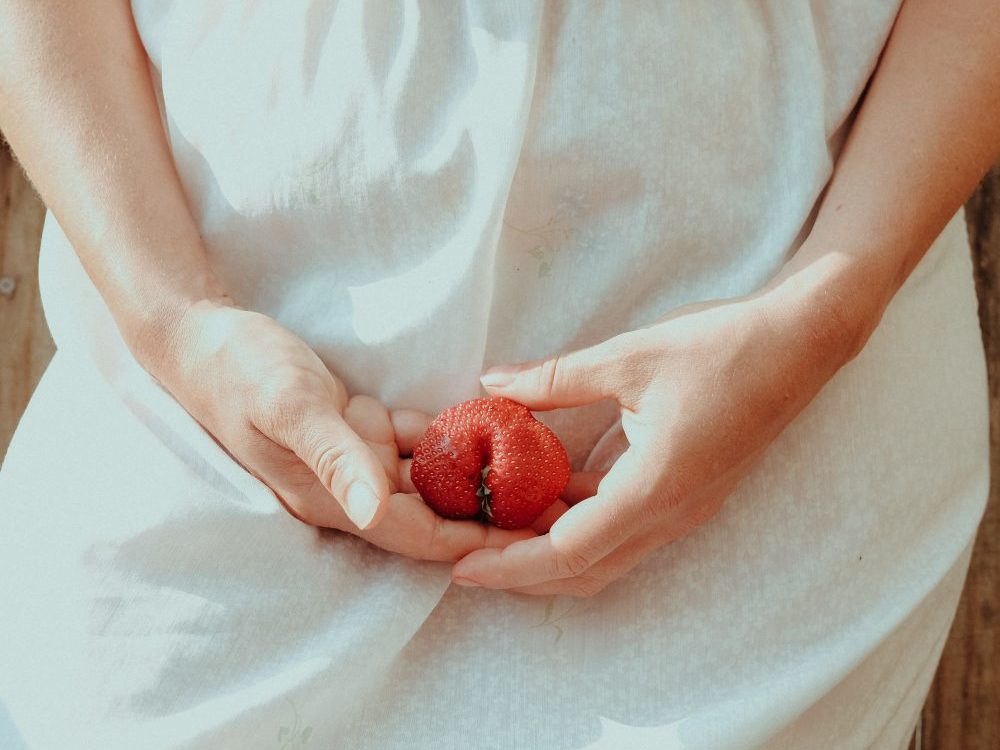Global sales of feminine hygiene products are predicted to reach just under 43 billion dollars by 2022. As the market expands, so do the variety of products vying for our attention. From ‘down-there’ deodorants to ‘intimate’ washes, wipes and perfumes, there’s never been more choice. But do our vaginas really need specialised hygiene products or are we inadvertently doing more harm than good? ‘Get ready with me’ vlogs documenting pristine morning routines are the backbone of the online beauty and lifestyle scene. As viewers become increasingly au fait with how to master a basic smokey eye and rustle up a green smoothie, new video content has emerged to meet the insatiable demand. Enter feminine hygiene routines in which vloggers spill the beans on how to keep fannies fresh and, as one influencer put it, “Smell and taste good for your man”.
In a video that has been watched over 1 million times, lifestyle and astrology influencer, Ava Haiva, recommends precision cleaning the vulva daily with a soap-soaked Q-Tip. In another, a beauty vlogger known as Victoria Victoria recommends herbal steaming the vagina and – in a video that has been viewed over 3 million times – advocates inserting a yoghurt-coated tampon and leaving for three days to prevent odour.
The sales figures speak for themselves — while Ava and Victoria’s routines may sound extreme, many of us have at some stage forked out on a feminine hygiene product. Have a nose through a girlfriend’s bathroom (we’ve all done it) and you’re likely to find an intimate wash tucked in the shower alongside their favourite shampoo and conditioner.
Research shows that mass demand for these products is driven by the desire to keep our vagina’s fresh, clean and — above all — odour-free. Before filling our baskets, it’s important to consider the ways that standards of feminine hygiene have long been dictated by a dangerous cocktail of misogyny and marketing — often to the detriment of women’s health.
It’s hard to believe that a product now sold as an anti-bacterial household cleaner was once advertised as a vaginal wash. But, when it comes to Lysol, that’s exactly what happened. Adverts from the 1930s reveal the insecurities that marketeers encouraged and preyed on. Neglecting feminine hygiene, they suggest, is ‘a grave womanly offence.’ Another proclaims that ‘one small intimate physical neglect can rob a wife of her husband’s love’.

In the 1950s, adverts from a competitor called Zonite depict a horrified young woman, ‘humiliated when she realised the cause of her husband’s frigidity.’ They also stress the particular horrors of vaginal odour:
‘An offensive odour even greater than bad breath or body odour, an odour that she herself may not detect but is so apparent to people around her.’
Though we’d reject this misogynist messaging today, the Youtube videos instructing women on how to taste as good as they smell are sure signs that these ideas linger. With aisles dedicated to feminine hygiene but no such products for penis, scrotum or anus ‘freshness’, the vagina retains its status in the public imagination as the dirtiest, smelliest, and most horrifying body part of them all.
Despite what these ads suggest, the vagina is self-cleaning and needs no interference. Vaginal discharge flushes out foreign agents and maintains the mildly acidic pH that allows protective bacteria to flourish and fight the bad bacteria that can lead to infection.
As well as being unnecessary, research has shown that douching (cleaning the vagina) is harmful. Studies indicate that it damages the protective bacteria leaving us more at risk of infections and the bad odours that accompany them. In fact, continuing to douche can encourage the spread of infection further into the body — increasing our risk of pelvic inflammatory disease and infertility. It also quadruples our risk of contracting HIV and gonorrhoea if we do come into contact with the virus. Paradoxically, then, the more we clean our vaginas, the ‘dirtier’ they get.
We can’t rely on those that profit from feminine hygiene products to put our health first. Lysol continued to be sold well into the 20th century, despite reports revealing 11 cases of poisoning and 5 deaths as a result of its use.
Worryingly, a YouGov poll has found that just 54% of women know not to wash their vaginas. Awareness becomes even more vague, however, when it comes to washing the vulva (the external organs including both labia, the urethra and clitoris). After all, the intimate wipes and washes lining our shelves are advertised for ‘external use only.’
Setting the record straight, the British Association of Dermatology advise that, unlike our vagina, vulvas should be cleaned but no more than once a day and with warm water only. Feminine washes can cause irritation and encourage infection by washing away protective bacteria. In fact, just as Lysol was advertised as a ‘scientifically correct preparation’, terms like ‘gentle’, ‘mild’, ‘pH-balanced’ and ‘gynaecologically tested’ mean nothing medically. ‘Gynaecologically tested’ carries the same weight as a toothpaste claiming to be ‘dentist-approved.’
Warm water should be plenty, but a fragrance-free emollient is preferable to soap for those that wish to use a product. This is because added fragrance is highly irritating to skin and can also mask symptoms of conditions that need further investigation. In order to keep our vaginas healthy for a lifetime we need to keep an eye out for anything abnormal and, to do this, we first need to be aware of our normal. What does our discharge look like throughout the month? What does our vagina smell like when it’s healthy? If we’re scrubbing our vulva’s silly and adding fruity and floral fragrances, we make this task all the more difficult.
It’s high time we stop holding our vaginas to medically disproven standards of ‘freshness’ and cleanliness that endanger our health as well as our self esteem.











